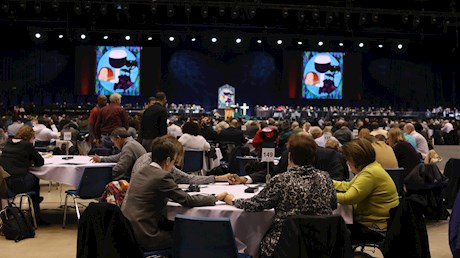Last week, the Southern Baptist Convention (SBC) called off its annual meeting scheduled for June 9-10, its first cancellation since World War II 75 years ago. The week before, the United Methodist Church (UMC) announced it would have to push back its quadrennial General Conference another year after its venue, the Minnesota Convention Center, canceled events through mid-May.
While members understand the circumstances, the decisions still come as hard news. Besides the denomination-wide fellowship and morale-building that happens at these gatherings, they are the vehicle for important decision-making affecting churches and ministries.
Leaders from both denominations say the delay puts some business on hold—but in most cases, the votes can wait. That includes the long-anticipated decision over how the UMC could split over irreconcilable differences on LGBT issues.
UMC split delayed
Postponing the UMC conference to 2021 gives leaders more time to deliberate their disunion. In January a group of traditional and progressive denominational leaders agreed on the “Protocol of Reconciliation & Grace Through Separation,” which proposed allowing conservative congregations to break away and form a new body. Rather than voting on the protocol in May, delegates will hold off until the 2021 General Conference. Many UMC churches had already begun to discuss whether to stay or go—with exiting churches keeping their buildings and taking $25 million to form the new denomination under the proposed protocol—but it’s unlikely any could afford to jump the gun and leave …
News brought to you by Christianity Today




